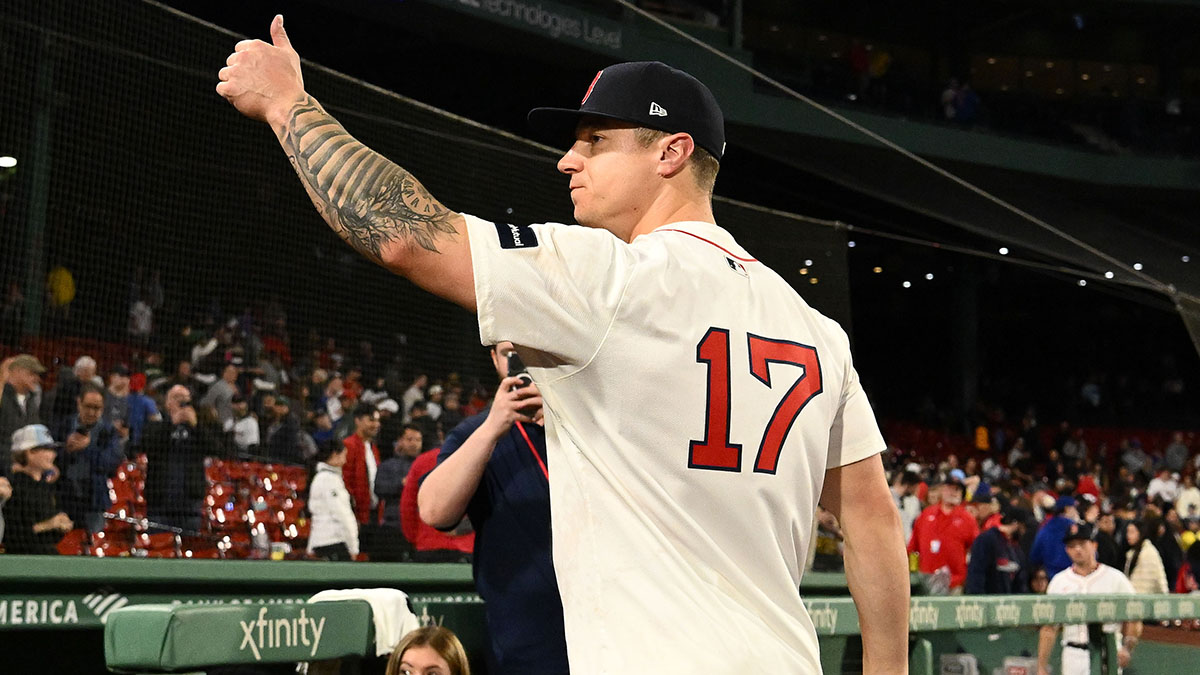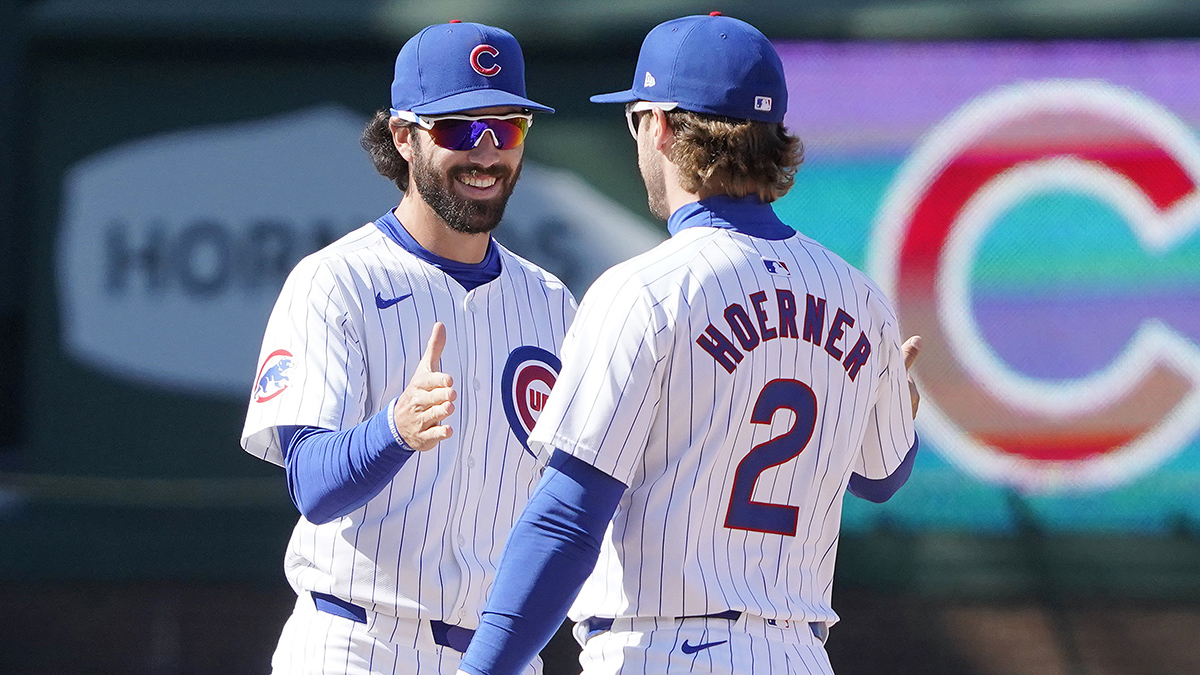Two years ago, the Red Sox traded one of the five best homegrown players in franchise history, and I supported it.
The Red Sox didn't want to pay Mookie Betts, chief baseball officer Chaim Bloom arrived with a mandate to move on, and Boston wasn't exactly dealing from a position of strength. Bloom did the best he could under imperfect circumstances.
I've been reconsidering the Betts trade since writing a best and worst list of Bloom's Red Sox deals to date this week. I found myself putting the trade in the "worst" category, a surprise since I defended it at the time and still believe it was the right move for the franchise.
Stay in the game with the latest updates on your beloved Boston sports teams! Sign up here for our All Access Daily newsletter.
Tomase: What is Chaim Bloom's endgame after flurry of pre-lockout moves?
But the more I think about it, the more I'm convinced that neither side won.
The players the Red Sox received have arced more towards their floors than ceilings, but out in Los Angeles, Betts is already showing the signs of breaking down that made it fair to question the wisdom of a long-term commitment in the first place.
Betts contributed to a 2020 World Series title, so the Dodgers can't complain there. The Red Sox rebounded nicely in 2021 and reached the American League Championship Series, so they're on the right track, too. But a case can be made that each club might handle the deal differently if given another chance.
Boston Red Sox
From a Red Sox perspective, this was less about Betts the player and more about Betts the moment in time. A rebuild loomed. Step one of a teardown generally doesn't involve shelling out $350 million.
The Red Sox would never "win" a Betts trade, especially once they prioritized ridding themselves of David Price and his hideous contract. Bloom, much like predecessor Ben Cherington seven years earlier, saw the Dodgers as a means of facilitating a salary dump. There would be a cost to L.A.'s largesse.
Out went the American League MVP, and in came promising young outfielder Alex Verdugo, top prospect Jeter Downs, and second-tier prospect Connor Wong. If all three players reached their ceilings, maybe the trade could be justified from a pure talent perspective.
So far none has come close. Verdugo shows flashes of being a tough out who controls the strike zone, but 13-homer outfielders aren't exactly franchise-altering. He's a slightly above-average hitter and left fielder who plays with energy and enthusiasm, but he's eminently replaceable. If he maintains his current production, he'll be as expendable next offseason as Hunter Renfroe was this one. He doesn't turn 26 until May, however, so there's room to grow. He's not yet a lost cause.
I'm not sure we can say the same about Downs. Already on his third organization since being selected in the first round by the Reds in 2017, Downs delivered an abysmal 2021. Playing in the Worcester wind tunnel that turned Jarren Duran into Ken Griffey Jr., Downs batted just .190 with 14 home runs. He then went to the Arizona Fall League and hit for power (5 HRs in 16 games) while batting just .228. Add questions about a shaky glove and it's possible the "best" prospect in the Betts deal isn't much of a prospect at all.
That leaves Wong, a nondescript backup catcher with some athleticism and a little power, but no particular standout tool.
That's not much of a return for an MVP, but ditching Price allowed the Red Sox to sneak below the luxury tax threshold as demanded by ownership without sacrificing any useful pieces off the roster. It would've been nice to pump Price's savings back into the product, but at least they didn't need to deal J.D. Martinez or Xander Bogaerts to find their desired savings. Welcome to the brave new world of payroll flexibility that has haves like the Red Sox acting like have-nots.
There's another half to this equation, however, that was little discussed in Boston during the furious displays of righteous anger over Betts' departure -- was he actually worth $350 million?
And that's where the Dodgers may be feeling some buyer's remorse. A series of nagging injuries, the most concerning a bone spur in his hip that sent him to the injured list twice, limited Betts to 122 games this year. He hit a career-low .264 with 23 homers and 58 RBIs and looked overmatched in the NLCS vs. the Braves, hitting just .174.
He reassured Dodgers fans that he won't need offseason surgery, but there are red flags and then there's a 29-year-old talking about hip surgery. That's the kind of thing that can derail a career and turn an instinctive, athletic superstar into late-90s Eric Davis. As it is, Betts appeared in a handful of games at second base to limit the wear and tear on his hip. His defensive metrics suffered tremendously, with the five-time Gold Glover rating 30th among right fielders in outs above average at minus-2, a far cry from the plus-22 that led baseball during his MVP 2018 season.
Is Betts breaking down? It wouldn't be unprecedented. Players of his size (5-foot-9) are simply not built to last. Injuries will only become more of a concern once he reaches 30 next October, and the Dodgers must pay him through 2032.
It's enough to make you wonder if the Red Sox say, "We needed to trade him, but we should've gotten more," while the Dodgers think, "We're glad to have him, but $365 million is a lot of money and 12 years is a long time."
Maybe trading him was equal parts right and wrong. Maybe the Dodgers were right to add him but wrong to extend him so massively. Maybe history will ultimately throw up its hands in recognition that all parties simply needed to move on.


